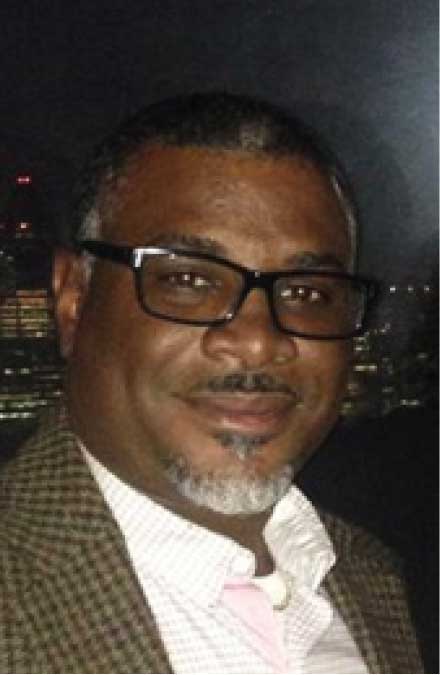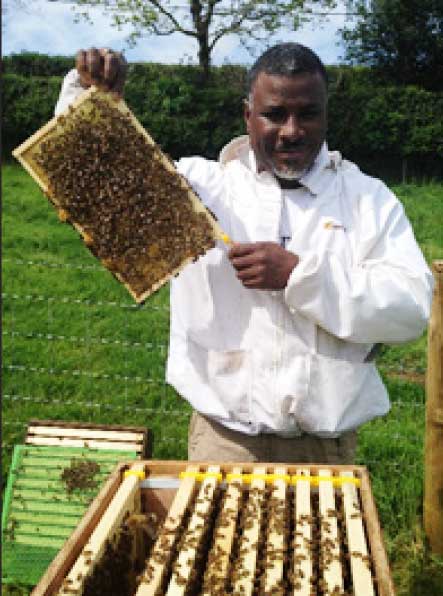
On September 1st, 2021, Cornell University, one of the top Ivy League Universities of the United States of America, conferred on Richard Alexander Matthias, the title of MASTER BEEKEEPER. It was the prize Richard had won after months of studying and successfully undertaking three sets of examinations. Our checks, though not thorough, have revealed that Richard may well be the first Saint Lucian to attain this title from Cornell University or from any other university.
Four reasons why we are featuring this accomplishment are:
because the apiculture industry within which Richard works, is a XCD$2 million industry in Saint Lucia, which means it is still in its infancy;
to develop the apiculture industry in Saint Lucia, the country will need experts in many fields;
our children should know that in the broad area of agriculture there are specialities which require an understanding of ecology, biology, and computers (AI and IoT); and
as the apiculture sub-sector expands and our experts move up the value chain, the financial and economic rewards will increase exponentially. Take for example the highly specialized field of extracting apitoxin from hives, which can sell, dependent on purity, between US$30 and US$300 per gram (https://www.beevenomlab.com/bee-venom/).
The Cornell University beekeeping programme is well-tested, and introduces students to “. . . concepts, knowledge, and best management practices”. As per the University’s website, “ a Cornell University Master Beekeeper Certificate from Cornell University College of Agriculture and Life Sciences, Department of Entomology, will be awarded to individuals who successfully complete the required coursework and receive a passing grade on all portions of the exam series.”
To attain this designation of Master Beekeeper, Richard had to attain an above 70% grade in five modules, id est, (i) Honeybee Evolution, Biology and Behaviour; (ii) The Science and Art of Beekeeping; (iii) Managing Pests and Diseases; (iv) The rewards and contributions of Beekeeping; and (v) Cornell Master Beekeeping Exam Series, which comprise a three hour written exam; a 15 minute oral presentation; and an evaluation of fieldwork demonstrating effective management techniques learned. For his oral presentation, Richard presented on the Use of Technology in hive management and hive characteristics found in Saint Lucia.

This singular and significant achievement is not all that Richard has attained over the last 15 years of working in apiculture. Richard Matthias is the owner of Belles Ruches Apiaries Saint Lucia; Co-founder/President of Iyanola Apiculture Collective (Saint Lucia); and the current President of the regional apiculture body, Association of Caribbean Beekeepers’ Organizations (ACBO).
Richard attributes his success to a number of local, regional, and international agencies for the advancement of apiculture in the Caribbean. They include GEF SGP UNDP, IICA, CBD, and JCCCP. Currently, Richard is the Master Beekeeper for the GEF SGP UNDP South/South Apiculture & Biodiversity initiative involving six Caribbean countries SKN, DOM, SLU, SVG, GRD, TT, and the South Pacific Island of Samoa. He is also the Apiculture Consultant for the Department of Sustainable Developments Project – Biodiversity in Livelihoods Apiculture funded by UNEP.
THE MASTER BEEKEEPER credits various mentors for his success. He explained that they took him by the hand and guided him over the years starting with the late Mr. William “Vavan” Antoine, and Mr. David Estephane of Saint Lucia; Mr. Duncan Simmons of the UK; Dr. Benjamin Poirot of France; and Mr. Gladstone Solomon of Trinidad and Tobago. He also recognizes the many years of support from his family and children; members of the Iyanola Apiculture Collective, ACBO, IICA, and Mr. Giles Romulus and his fellow colleague National Coordinators in the Eastern Caribbean.
But what else has he accomplished that are really impressive? Consider the following: the first person to recommend and direct the DNA testing and DNA typing of the bees of Saint Lucia; the first apiculturist to introduce remote sensing for hive management in Saint Lucia; and the only person we know who actively practiced instrumental insemination of bees in Saint Lucia.
When you speak to Richard about Apiculture, he emphasises two basic points: first, we must manage the bees as part of one integrated ecosystem and we must recognise that a principal law of nature is equilibrium; and second, we must not fall into the trap of the sugar and banana periods, that is, ‘locked’ at the primary production level. He argues vociferously that we must seek as a nation to climb the value chain to the highest level through scientific research and the active use of technology.
Richard points Saint Lucia in the right direction and for such exemplary words and deeds, the GEF SGP UNDP congratulates him on his achievements.
From him much more is expected . . .




![Simón Bolívar - Liberator of the Americas [Photo credit: Venezuelan Embassy]](https://thevoiceslu.com/wp-content/uploads/2025/12/Simon-Bolivar-feat-2-380x250.jpg)



